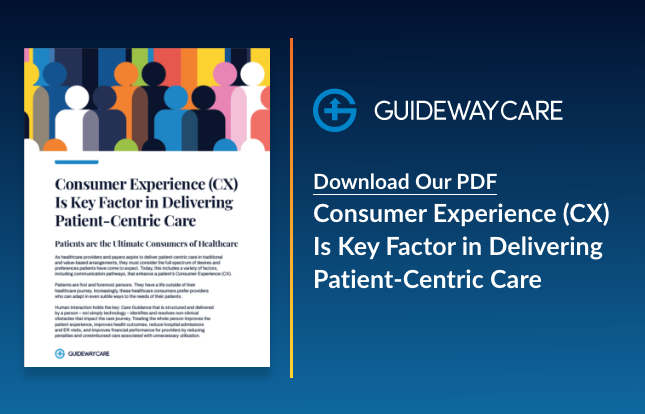What Is Person Centered Care, and How Can it Improve Healthcare?

Numerous studies have shown correlations between patient satisfaction and outcomes—two key performance indicators for medical organizations. Due to these trends, as well as an increasing recognition of person-centeredness as one of the key domains of high-quality care, it’s essential that healthcare providers prioritize person-centered care.
What Is Person-Centered Care?
Person-centered care, also referred to as patient-centered care, is defined by the World Health Organization as “empowering people to take charge of their own health rather than being passive recipients of services.” This care strategy is based on the belief that patient views, input, and experiences can help improve overall health outcomes. One of the key ways to involve patients in their own health is by improving interactions between patients and healthcare providers, making care feel empathetic and compassionate, not merely transactional. To accomplish this, physicians, nurses, and other staff must be trained to listen to, inform, and consult patients throughout the healthcare continuum, as well as to consider individual preferences, needs, and values when making clinical decisions.8 Key Principles
Patient-centered care is often discussed using the framework created by the former Picker Institute, a nonprofit organization dedicated to advancing the principles of patient-centered care. This framework included eight key principles, outlined below.Respect for patient values, preferences, and needs
As mentioned previously, patient preferences should be considered during person-centered healthcare decisions, as this will foster a relationship of respect and collaboration.Coordination and integration of care
Improved coordination and integration of clinical care and support services can help reduce patient uncertainty and vulnerability.Information and education
To make better decisions about their health, patients need information on their clinical status, progress, and prognosis. Many patients may also benefit from educational resources that are tailored to their level of health literacy.Physical comfort
Pain management and assistance with daily needs are key to improving patient experience in hospitals and acute care facilities.Emotional support and alleviation of fear
Similarly, patients should be provided with the resources needed to minimize stress and fear regarding their physical status, treatment, and prognosis, as well as worry caused by financial aspects of care.Involvement of family and friends
Support from family and friends is a key aspect of person-centered care, so providers should take the needs of caregivers, family, and friends into account. This might mean providing accommodations and support for these individuals or involving them in decision making.Continuity and transition
To minimize patient concern about post-discharge care, medical providers should educate patients on medications, physical limitations, dietary needs, and so on. Further, they may need to coordinate ongoing treatment or offer information on access to clinical, social, physical, and financial support.Access to care
Healthcare organizations aiming to provide person-centered care should do their best to streamline appointment scheduling, make referrals accessible, and provide information on transportation options.The Effects of Person-Centered Care
The main goal of a patient-centered care model is to improve individual outcomes—when patients are more involved in their own care, they often recover more quickly and are more satisfied with the care they receive. For instance, research in the Journal of Family Practice found that patient-centered practice resulted in better recovery from discomfort and concern, better emotional health in the future, and fewer diagnostic tests and referrals. Additionally, studies have found that a strong patient-provider relationship is an important motivator for preventive care. When patients feel respected and experience compassion and empathy from their providers, they are more likely to return for annual physicals, immunizations, and so on. However, those are not the only benefits of a person-centered medical approach. NEJM Catalyst explains that this model of care can also lead to improved patient satisfaction scores, better morale and productivity among staff, improved resource allocation, and in the long run, even reduced expenses.Contact Us Today To Learn How We Can Help
"*" indicates required fields




